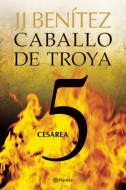Tirso de Molina: His Originality Then and Now
Categories: Literary Criticism
This new collection of essays on Tirso de Molina (1579-1648), perhaps the most experimental of the great Golden-Age dramatists, seeks to isolate the particularity of his theatrical genius within his own historical context, as well as to capture his special resonance for posterity. Some contributions stress Tirso’s theatricality, regarding his works, not so much as archival “literature,” but rather as poetic drama, play scripts out of which a living performance may be constructed. Other papers discuss such typically Tirsian themes as play-within-the-play, the mutability of identity, gender confusion, chaos, night scenes, the materiality of human life, as well as vindicating the Tirsian paternity of El burlador de Sevilla. Using a wide variety of critical approaches, the authors bring us a dramatist of enduring originality who formed an essential bridge between the pioneer creator of the Comedia, Lope de Vega, and the consummate craftsmanship of its perfecter, Calderón de la Barca.
Contributors to this volume: William R. Blue, Louise Fothergill-Payne, L. Carl Johnson, Catherine Larson, Valerie Hegstrom Oakey, James A. Farr, José M. Ruano de la Haza, Dawn L. Smith, Anita K. Stoll, Mathlon Lee Stoutz, Matthew D. Stroud, Henry W. Sullivan.






